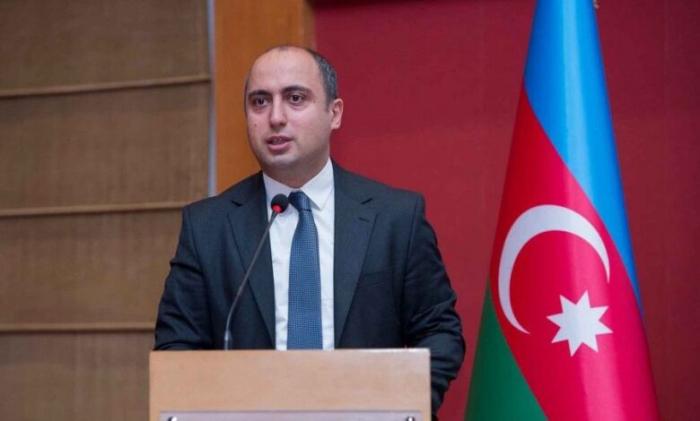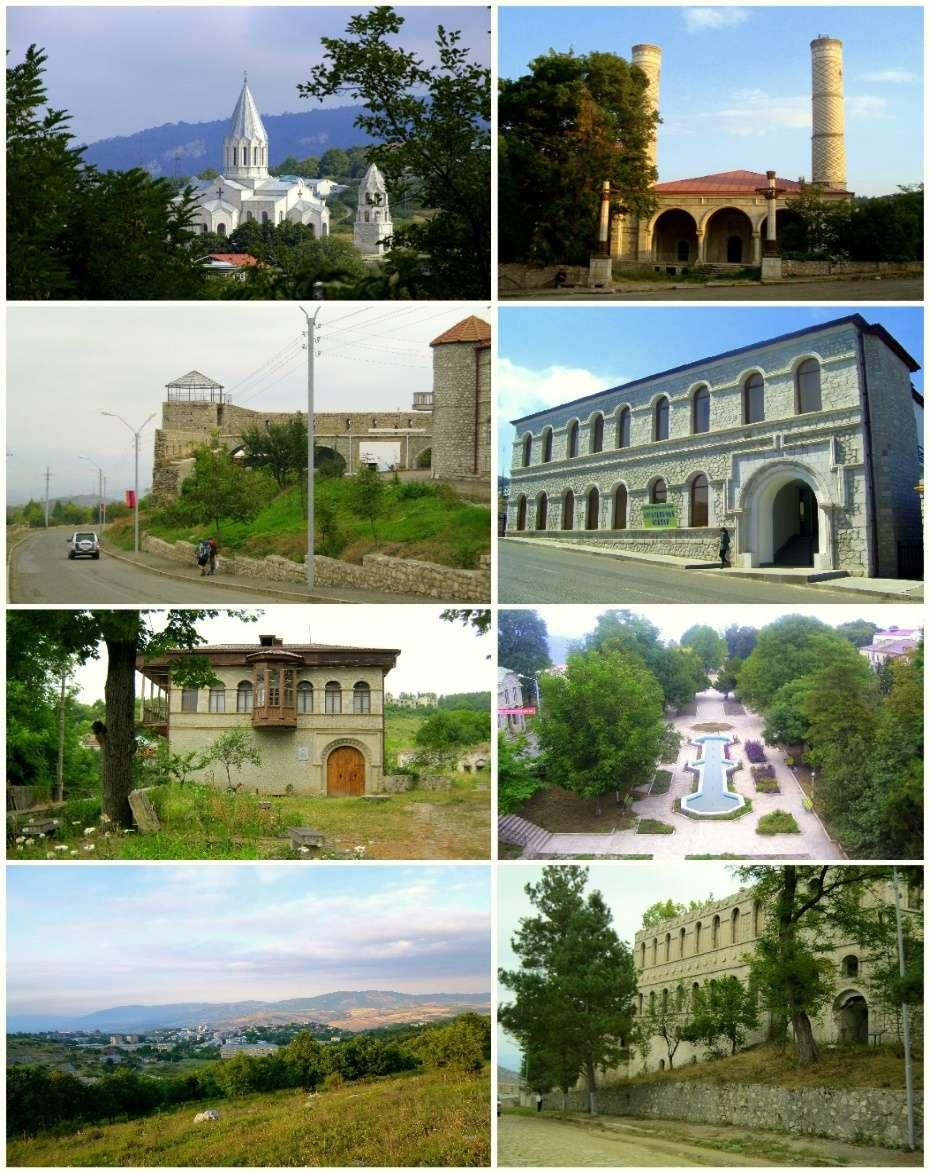A beacon of hope: The role of new Karabakh University in healing post-war wounds
The Karabakh region, once notorious for the decades-long conflict and bloody wars, triggered by the nearly 30-year-long Armenian occupation of Azerbaijani lands, is now witnessing transformative changes with the reconstruction of the entire region in full swing and the establishment of a new educational institution – Karabakh University – in Khankendi – the city where anti-Azerbaijani propaganda and separatist plans were in the making until September of 2023 since the demise of the USSR in early 1990.
This academic institution emerges as a symbol of hope and renewal, aiming to contribute to the healing process in a region scarred by the brutal occupation unprecedented for cruelty and destruction. The inception of the Karabakh University marks a crucial step toward rebuilding not only infrastructure but also fostering intellectual growth and harmony.
The Karabakh University is to be opened in September 2024 as Minister of Science and Education Emin Amrullayev told a briefing on November 30, where nearly 1,000 students are to study various subjects, tailored to the fundamentals and needs of the region in particular and Azerbaijan as a whole. The education minister believes that exchange or double degree programs will also be available at the university.

Azerbaijan’s Karabakh region is a clean slate for the winning nation to carry through grandiose projects from scratch ascribed to the most daring national success story that refutes the predictions of skeptics. This region can become a model of application of avant-garde tech in all sectors and the government’s drive since day one of the reconstruction serves to the clearly articulated development plan.
The newly-regained Karabakh and Eastern Zangazur economic regions of Azerbaijan are new laboratories for the government to carry through with cutting-edge projects to erase obsolete, useless, and disposable facilities and consequences of previous mistakes that cost Azerbaijan dearly when the region was autonomous that led to the birth of separatism and consequently of wars and numerous killings and destruction of the territory of the size of Luxembourg.
Azerbaijan has regained its own lands and endeavors to alter the scarred face of Karabakh by introducing the most subtle and original solutions, the latest technologies at the university are believed to serve the reconstruction and be handy for IDPs’ voluntarily coming back to their ancestral lands.
Historical context
The Karabakh conflict, which lasted for three decades, left deep-seated wounds in the hearts and minds of the people in the region and far beyond. Families were displaced, communities were shattered, and the educational infrastructure was destroyed. The establishment of the Karabakh University represents a significant departure from the era of conflict, signaling a commitment to rebuilding and restoring normalcy to the lives of those affected.
The city of Shusha – the cultural, spiritual, and education center of the wider Karabakh region – in close proximity to Khankandi, where the university is located - has played a pivotal role in the formation of the entire region.
This ancient city is both the historical capital of the Karabakh Khanate and a temple of culture, a historical monument in itself. Described as a precious monument of medieval urban planning art, Shusha was a pearl of national architecture, the cradle of Azerbaijani music, especially mugham, and the conservatory of the east for its unique importance that saw barbaric destruction in the hands of the aggressors.
Before the occupation, Shusha had 25 schools, 31 libraries, 20 health institutions, 17 clubs, eight cultural houses, four technical schools and two branches of institutes, seven kindergartens, four cinemas, five culture and recreation parks, two sanatoriums, tourist bases, two hotels, the branch of the State Carpet Museum of Azerbaijan, the Shusha State Drama Theatre, the oriental musical instrument factory, the State Art Gallery, and the Children's Health School that were all destroyed.

With the occupation of the city of Shusha, the material and cultural heritage of the Azerbaijani people, as well as the educational infrastructure, formed over the years, were severely destroyed. Armenians demolished and looted many valuable historical and cultural monuments in Shusha. In addition, before the occupation, there were over 170 residential buildings and 279 religious, historical, and cultural monuments in Shusha, which were considered architectural monuments.
This city called the Conservatory of the East, was the home of renowned singers such as Jabbar Garyagdioglu, Gurban Pirimov, Uzeyir Hajibayov, Bulbul, Seyid Shushinski, Khan Shushinski, Rashid Behbudov, Niyazi, Fikrat Amirov, Suleyman Alaskarov. At an altitude of 1,403 meters above sea level, the city famous for Turshsu mineral water has become the most relaxing place for guests as a resort. Shusha, which is considered the homeland of the nightingale, has become a place that is always admired due to its beauty.
Educational renaissance
The university is to serve as a beacon of education, offering a diverse range of academic programs aimed at nurturing a new generation of leaders, scholars, and professionals to facilitate the rebuilding and reconstruction efforts of the Azerbaijani government and implement the best of the national and world architecture in harmony with the requirement of local urban planning.
By providing quality education, the university aims to empower the youth with the knowledge and skills needed to contribute meaningfully to the reconstruction of their communities. This educational renaissance is crucial for breaking the cycle of despair fostering a sense of purpose among the youth and promoting the accomplishment of their ideas tailored to the local needs.
One of the key aspects of Karabakh University is its commitment to fostering cultural integration and understanding. The university is to bring together students from diverse backgrounds, providing them with an opportunity to interact and collaborate. This cultural exchange is essential for breaking down pre-existing prejudices and building bridges of understanding among communities that may have been divided by historical conflicts.
The healing process in post-war regions often requires more than just physical reconstruction. Psychological wounds run deep, and education can play a pivotal role in addressing similar issues. The Karabakh University will not merely be a place of learning but also a platform for dialogue, reflection, and understanding. By promoting academic excellence and encouraging open discussions, the university aims to facilitate the healing of emotional and psychological scars left by the protracted conflict. The Karabakh University will combine in its activities both the applied tasks of education for regional socio-economic development that is training of personnel for industrial technology parks of the Karabakh and Eastern Zangazur economic regions.
Once Karabakh University becomes fully operational, it may well become a generator for breakthrough ideas if conditions are created for constant brainstorming by the best representatives of science. It is worth mentioning that the presence of a university in the Karabakh region will also have a beneficial effect on the secondary education system, which requires fundamentally new methods to form full-fledged thinking individuals.
The future Karabakh University will have a large selection of areas of advanced scientific and technical development in which the university can realize its capabilities - new agricultural technologies for soil conservation and biocomplexes - development of permacultures that practice agriculture in natural ecosystems - design of unmanned aerial and ground-based equipment, participation in international research programs on biosphere processes, research in the field of history and archeology of the South Caucasus as outlined by the education minister.
Community engagement and development
Beyond the classroom, Karabakh University is actively engaged in community development projects. These initiatives range from infrastructure development to healthcare and social welfare programs. By actively participating in the rebuilding process, the university becomes an integral part of the community, reinforcing its commitment to holistic development.
Soon, by 2026-2027, tens of thousands of families will be relocated to Karabakh with potential students of the younger generation. Under the government estimates, in the first stage, it is planned to return 140,000 IDPs to the de-occupied territories. The government is planning to have 100 settlements rebuilt and restored in the medium term, including nine cities and eight housing estates.
All the infrastructure and habitat of the region necessary for the implementation of these tasks is available - international airports within hour's accessibility, modern highways, high-speed Internet, systems of renewable energy sources to ensure the energy supply of the region, villages, and neighborhoods that meet all the necessary criteria for the quality of life of the urban level. These, in a nutshell, are the main components for organizing modern scientific teams far from noisy cities.
Conclusion
The establishment of the Karabakh University represents a turning point in the history of the region, signaling a commitment to healing and rebuilding. Through education, cultural integration, and community engagement, the university aspires to be a panacea for the wounds inflicted by decades of conflict.
As students and educators come together in pursuit of knowledge and understanding, Karabakh University stands as a symbol of hope, resilience, and the transformative power of education in the face of adversity.
Like any ambitious undertaking in the education system, this project will have many difficulties. The goal of the Karabakh University project will not be science for the sake of science, but science for the sake of the people and the region it locates as well as for Azerbaijan to develop projects that serve progress.








